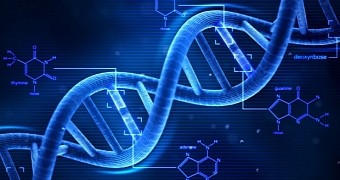A new report in the journal Proceedings of the Royal Society Section B proposes a link between a person's DNA and their political views.
Specifically, the study argues that an individual's political ideology depends not only on what they have learned in their infancy from their family and from their peers but also on a specific gene variant.
Interestingly, the researcher team behind this investigation, led by specialist Richard Ebstein with the National University of Singapore, says that this correlation between genetics and political views is stronger in women than in men.
Documenting how DNA influences political views
As part of their study into how genetics correlates with political ideology, researcher Richard Ebstein and colleagues had a group of 1,771 Singaporean Chinese volunteers complete questionnaires designed to reveal whether they identified as liberal or as conservative.
The scientists also collected DNA samples and documented permutations in a gene called DRD4, previously shown to be involved in the circuitry of the neurotransmitter dopamine in the brain and influence risk-taking behavior.
It was discovered that, at least in the case of the women included in this study, those who possessed a specific variant of the dopamine-regulating gene DRD4 had a tendency to be more conservative in terms of political ideology.
“The results revealed that the Dopamine D4 receptor [DRD4] gene better predicts political inclinations of females than males, in a Singaporean Chinese population,” the researchers explain.
“In particular, Singaporean Chinese women who possess the 4R/4R variant of the Dopamine D4 receptor gene are more likely to demonstrate risk aversion and are more politically conservative,” the team goes on to detail their findings.
This might explain why political views are difficult to shift
Specialist Richard Ebstein and fellow researchers argue that, if political ideology is, in fact, influenced by genetics as their investigation suggests, this might explain why people's beliefs when it comes to politics are usually quite difficult to shift.
The team plans to further investigate the matter and try to determine whether other genes might have a say in an individual's political attitudes as well.

 14 DAY TRIAL //
14 DAY TRIAL //